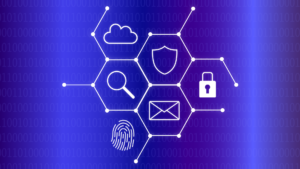For most people, life without the Internet has long been unimaginable. Whether at home, at work or anywhere along the way – information technology is simply everywhere. However, its ubiquity also raises the question of its security. A question that experts already asked themselves back when the Internet had only just begun to develop. Since 1988, November 30 has been dedicated to IT security in many countries. The aim of this event is to raise general awareness of IT security and to educate users on the subject. To mark the occasion, we have compiled five very simple tips for more IT security in everyday life.
The Browser as Entrance Gate
The browser is our window to the web and is considered the biggest gateway for viruses and other threats. If you want to surf the web safely, you should pay attention to a few things when it comes to choosing your browser and visiting websites.
When choosing your browser, make sure that the software is being regularly updated. You should also take a look at the browser’s security settings. Popular browsers have integrated phishing and malware protections. You should definitely activate them. You can also automatically disable the use of active content when visiting unknown websites via the browser’s security settings.
Trustworthy websites can be recognized, among other things, by the fact that they use SSL certificates for encryption. You can tell whether your browser has been able to establish an encrypted connection with the website you are visiting by the fact that the URL begins with “https”. If this encryption is missing, the website is considered insecure and represents a high security risk. However, malware can be caught not only on dubious websites. Even supposedly trustworthy websites can be used by cybercriminals to spread malware even more effectively.
Regular Updates
Software updates are one of the fundamental pillars of IT security. They serve to improve and, above all, protect systems. They are intended to fix any bugs in a software and close security gaps. That is why they are one of the most effective means of defending against attacks online. Updates should always be installed as soon as possible, so that the systems can always be protected against new threats. Operating systems and all software, such as browsers, should be updated on a regular basis. Many systems offer automatic updates. This will ensure the latest version is always installed.
The Thing with Passwords
If you want to protect your data, you will need secure passwords that are not easy to crack. Such a password should consist of at least 10 characters. A combination of upper and lower case letters and the use of numbers and special characters also increase the level of security of the password. Login data that contains personal information, such as names or dates of birth, is considered particularly insecure.
In addition, it is often not advisable to carelessly save passwords in the browser. Saving passwords can pose a security risk under certain circumstances, as browsers can also have security gaps. You can increase your protection by managing your login data with the help of a password manager. A password manager stores and encrypts the data in such a way that it cannot be read by cybercriminals. Some browsers come with their own built-in password manager.
If you want to protect your online accounts even better, you should use two-factor authentication wherever you can. As soon as a user logs in, a one-time code is sent to him or her, for example, as an SMS or generated by an app. Both the password and this unique code are required for a successful login.
Backing Up
Unfortunately, we don’t always manage to protect all our data from attacks or simply from sudden hardware failure. No matter if the hard disk fails or if we fall victim to ransomware, there is one thing that will save us in the worst case: backups! Users have a variety of backup options at their disposal. For example, backups can be created automatically or manually. The data can be stored either physically, for example on an external hard drive, or online. Backups should be made regularly to prevent data loss as effectively as possible.
The Human Firewall
The level of security of a system is always only as good as the person operating it. This is characterized by the fact that a large proportion of security incidents are due to human error. However, the human factor should not be seen as a security risk, but rather as an opportunity. The greater the security awareness, the greater the likelihood that a cyberattack can be prevented. It is therefore particularly important to strengthen this security awareness and to sensitize users to security risks.
Join us in becoming part of our human firewall. You can find all our blog posts on the topic of security in dealing with information technology under the tag IT security.
Responsible for the content of this article is Stéphanie Bauens.





